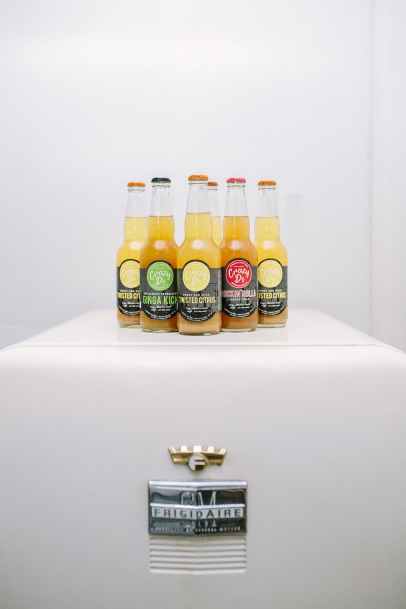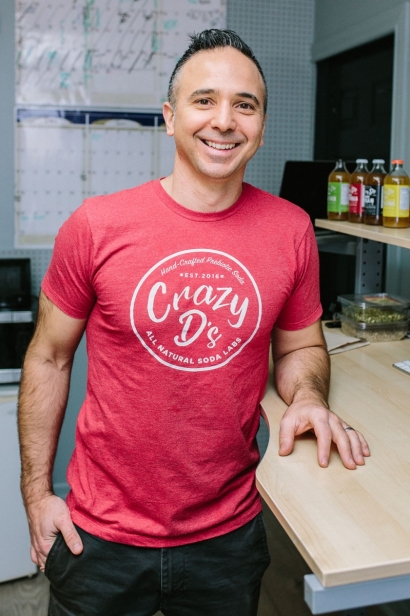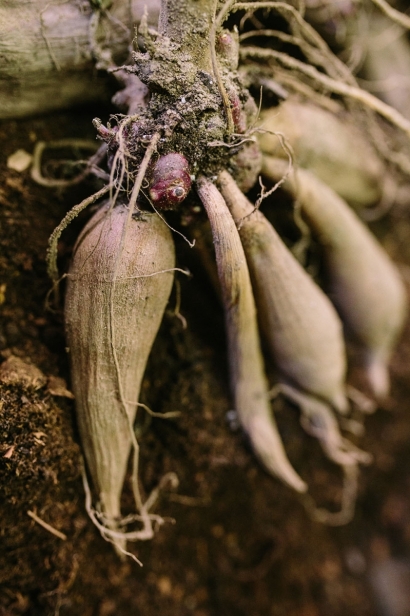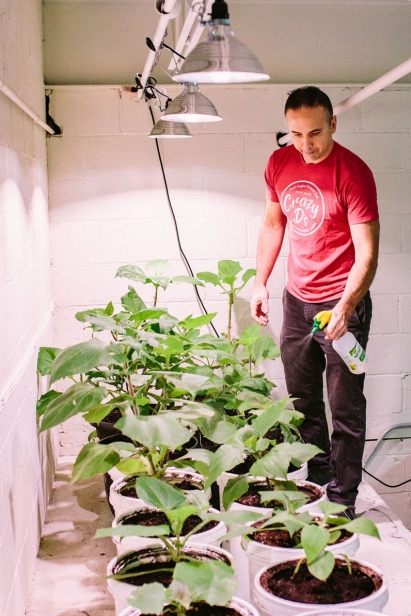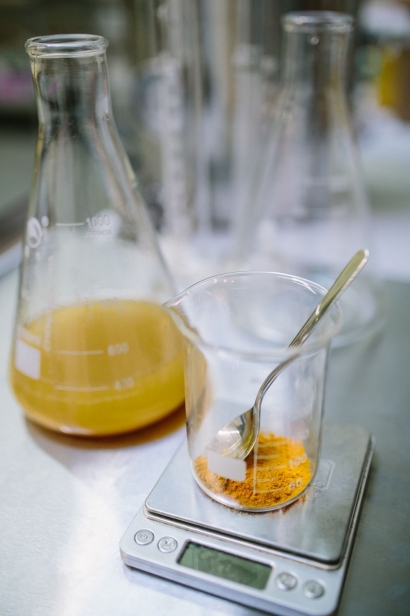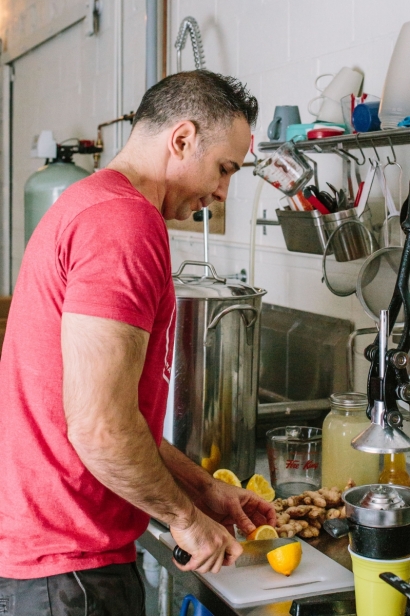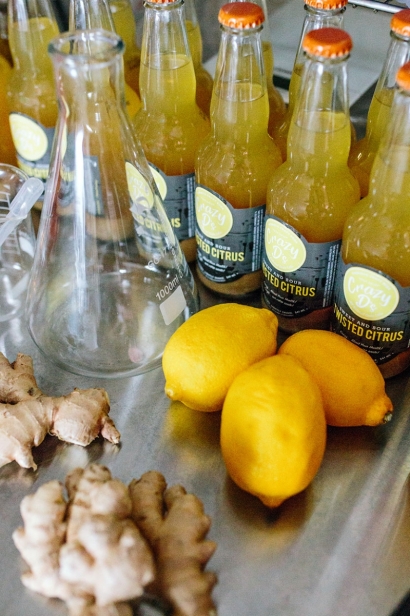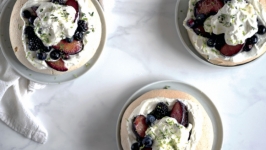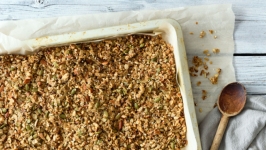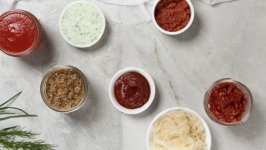Soda That's Good for You?
Darren Portelli took one of North America’s most condemned junk foods and turned it on its head. The founder of Crazy D’s Soda Labs makes soda that he says is good for the gut. It also happens to be pleasingly sweet, complex and free of added sugar — without the guilt.
“Healthy pop” may seem like an oxymoron, but Portelli found his way to soda as a matter of personal well-being. After many years of living with mental health issues, he started to experiment with his diet. Like a growing number of researchers, Portelli had a hunch that what’s good for the gut is also good for the brain.
“Everything stems from my quest to help myself with mental health issues. That’s where all of this began,” Portelli says. After a particularly difficult period in 2011, he quickly honed in on sugar as a major culprit.
That’s where the tinkering began. He wanted to make a soda that satisfied his craving for something fizzy and flavourful, tasted like a Friday-night treat, but didn't wallop him with sugar or trigger an inflammatory response.
“I spent about three years experimenting, trying to make these drinks. My son and my wife would laugh. I’d get friends to try my concoctions. It was always an interesting drink, but it was never quite something that would sell,” Portelli says.
When he came across a sweet, prebiotic-rich root called yacón, the pieces started to come together.
As a key ingredient in his sodas, yacón provides sweetness without raising blood-sugar levels the way traditional sweeteners do. A relative of the sunflower, yacón has a long culinary history in Peru, but is relatively unknown in Ontario. It is a perennial herb, also known as Peruvian ground apple or jicama. Its tuberous roots taste like a cross between an apple and celery and are packed with soluble prebiotic fibre. It tastes sugary, but scores very low on the glycemic index. Not to be confused with probiotics — the good bacteria that live in a healthy digestive system and thrive on prebiotics, a type of fibre that these good bacteria digest readily. Garlic, asparagus and Jerusalem artichokes are also all rich in prebiotics.
Portelli’s hunch that changing his diet would help him improve his mental health appears to have a growing body of research backing it.
Researchers suggest that a robust microbiome isn’t just good for digestion, it’s a factor in brain health. The consensus on this is strong enough to have earned the tagline “gut-brain axis” by published scientists to explain the biochemical relationship between the gastrointestinal tract and the nervous system.
“I was reading about how the gut is a second brain, how it helps with hormone regulation and mood improvement. None of that worked until I was taking prebiotics,” Portelli explains.
Portelli’s goal wasn’t to make a healthy alternative to soda. It was to make a healthy soda, period. But his sodas don’t taste virtuous. They taste like pop you could enjoy on a movie night, something many foods that fall under the health-food category can’t get right — a genuine treat.
Flavours such as “Ginga’ Kick” (ginger, lemon, lime, vanilla, cinnamon and turmeric) and “Rockin’ Rolla Cherry Cola” (tart and sweet cherries, cinnamon, coriander, nutmeg) are favourites among customers. One 341-millitre bottle averages only 70 calories and five grams of sugar compared to 140 calories and 39 grams of sugar in mainstream soda.
Much of the all-natural soda production process is kept tightly under wraps, but Portelli says he uses methods that preserve nutritional value, such as cold pressing his ginger, lemon and lime juices. And most of the ingredients he uses also have antiinflammatory traits.
As for that peculiar yacón root? It doesn’t travel well from Peru, so Portelli uses a liquid concentrate, which is extracted by a “proprietary cold mechanical process” where no heat, solvents or chemicals are used. The resulting syrup shares many of the same health properties as the root itself.
The soda-maker is experimenting with growing yacón root in his lab and hopes to one day use those tubers instead of relying on importing it.
Crazy D’s customer base is expanding as is production. Until recently, Portelli was bottling his soda is his Scarborough lab, but now he’s using a bottling facility in the Niagara region. “We just did our first run of 20,000 bottles,” he says. He expects to be producing that amount every two to three months.
For the most part, health conscious types are picking up the sodas. He’s also pleasantly surprised that the vegan crowd is showing interest with vegan cafés, such as Kupfert & Kim, and Boon Burger, carrying his drinks. “I was not anticipating that. Sometimes your market finds you,” he says. Crazy D's sodas can also be found at Pusateri's Fine Foods, McEwan, Live Organic Food Bars and select Farm Boy locations.
In his quest to get his soda fix while maintaining good health, Portelli says he’s fixed soda.
“There’s nothing wrong with soda… it’s what’s we add to it,” he says. He added some good, left out the bad and came up with something that left him feeling great.
Crazy D’s Soda Labs
crazydlabs.com, 416.855.6071


